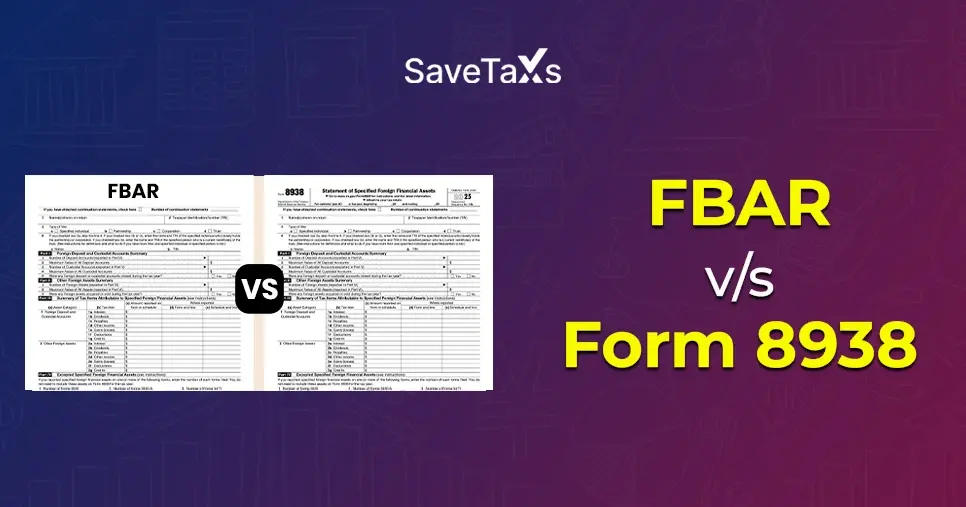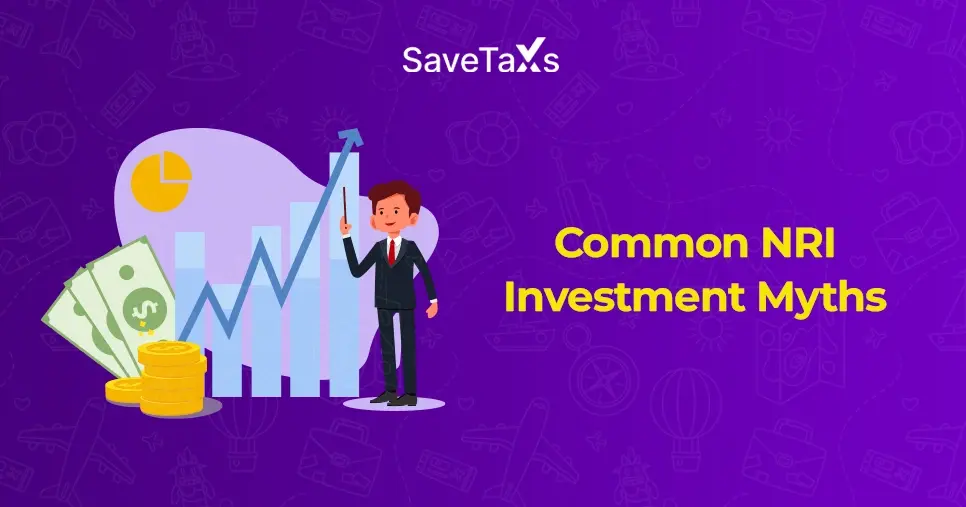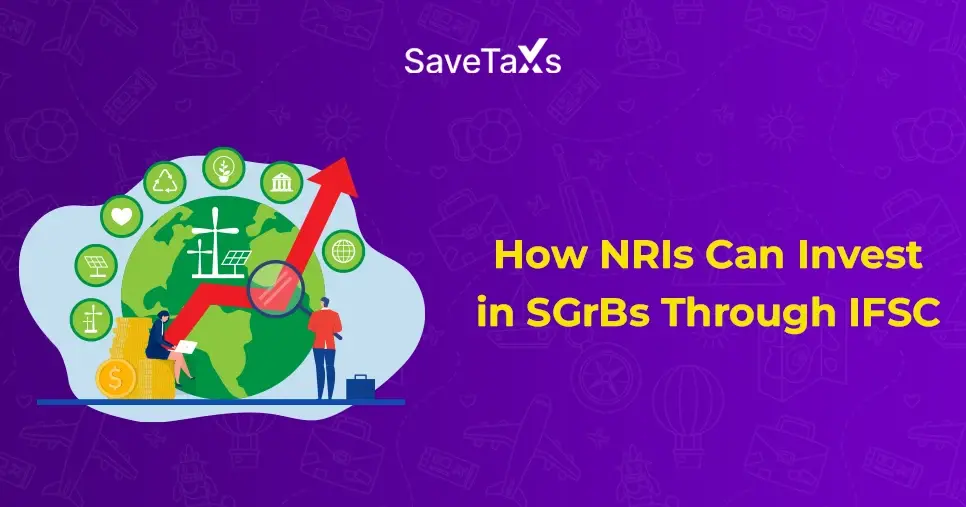- What is an NRI Gift Deed?
- What is the Gift According to the Income Tax Act?
- What is NRI Gift Taxation in India?
- FEMA Regulations for NRIs on Receiving Gifts.
- Gifting Between NRI and Resident
- Gift Tax on Property For NRIs in India
- Who Are the Relatives as Per the Income Tax Act
- Taxability of Income Generated From Gifted Assets.
- Consult a NRI Tax Expert For a Better Understanding
Everyone loves a gift, but as a non-resident Indian, it might come with some tax implications. Suppose your relatives or any other family member gift you money or assets. In that case, it is essential to know that there is a gift tax law in the Indian Income Tax Act, and understanding its entire regulatory framework is important.
In this blog, we will explore the definition of a gift as per the Income Tax Act in India, including the associated limits, rules, and tax implications.
What is an NRI Gift Deed?
In April 1958, the Government of India introduced the Gift tax, which was then governed by the Gift Act of 1958 (GTA). The reason behind imposing this tax was to impose a tax on the receipt and giving of gifts under certain circumstances.
An NRI gift deed is a document that is needed under Section 17 of the Registration Act of 1908. The NRI gift deed is also known as a formal agreement that is made between the donor and the recipient, and everything has to be printed on stamp paper, which both parties have to sign.
What is the Gift According to the Income Tax Act?
The acceptability for receiving the gift is regulated by the Foreign Exchange Management Act 1999 (FEMA), and it is taxable under the Income Tax Act 1961 (IT Act).
As per the Income Tax, a gift is money or assets that an NRI receives from another person without any consideration. Now, without any consideration, this means that the receiver of the gift does not have any liability or obligations to pay back in any manner.
Such Assets Could Be:
- Liquid Funds
- Immovable Property
- Shares and securities
- Interest in a limited liability partnership LLP
- And other assets like jewellery, artifacts, paintings, sculptures, bullion, and more.
What is NRI Gift Taxation in India?
Many of us love giving gifts, and we often love receiving them even more. As mentioned above, NRIs can have some tax implications from receiving gifts. The Indian Income Tax Act has outlined some guidelines to understand when a gift is taxable in India. As per section (3) of the Gift Tax Act, 1958, in 1998, the gift tax was abolished in India, and you will not be taxed on the gifts received from relatives.
General Gift Tax Exemption: The Income Tax Act exempts gifts received from a non-relative to an immediate family member up to INR 50,000. If the total amounts exceed he concerned threshold, the full amount will be taxable under the income from other sources category.
Gifts from Relatives: Gifts received from relatives are exempt from income tax, regardless of their amount. As per the Income Tax Bill of 2025, the relatives must be either the maternal or the paternal relatives, as well as the parents and grandparents of the spouse. Moreover, sibling children, grandchildren, and other close relatives are also included.
FEMA Regulations for NRIs on Receiving Gifts.
NRIs must follow the Foreign Exchange Management Act (FEMA) guidelines while receiving gifts from India or even abroad.
- NRIs can receive gifts, including both immovable and movable property, but the acceptance and remittance of these gifts are regulated by the FEMA (Foreign Exchange Management Act).
- Under the LRS, which is a liberalised remittance scheme, the NRI's foreign income is capped at USD 250,000 per financial year.
- For NRIs, receiving monetary gifts can be credited to the NRO account only.
- The sale proceeds of an immovable property have a cap on remittance, which is only up to USD 1 million per year. If the amount is higher than the limit, RBI approval is needed. Now this may be subject to gift tax in India.
- If there is any gift from the financial securities, it cannot exceed the limit of 5% of the company's paid capital.
- Gifts in the form of cash, if given above the threshold limit of 2 Lakh, can attract penalties.
- If the total value from a non-relative gift exceeds 50,000 INR in a financial year, it is taxed, unless exempted under special categories like will, inheritance, or marriage.
Gifting Between NRI and Resident
Below, we will examine the tax implications of gifting to an NRI from an Indian resident and vice versa.
Gifts From an NRI to an Indian Resident
- If a resident Indian receives any gift from an NRI (relatives), such gifts are exempt from taxes.
- If an Indian resident acquaintance or friend received any gift from an NRI (non-relative), such gifts are tax-exempt till Rs 50,000. If the amount exceeds the threshold, the entire amount becomes taxable.
- Gifts given by NRIs to resident indian on special occasions, such as marriage or through a will, are exempted from tax in India for both the receiver and the giver.
Gifts to NRI by Resident Indian
- Gifts such as money, be it cash, cheque, or a draft, are taxable if the value of the gift is above Rs 50,000.
- Gifts up to Rs 50,000 are not subject to tax.
- Any property or money gifted on marriage is not subject to tax.
- Gifts from close relatives are not subject to tax.
- Gifts from someone who is not a close or specific relative are also not subject to tax, only if the gift value is up to Rs 50,000.
- Immovable property, be it land or house, if received from a non-relative and has a value of over 50,000, will be subjected to tax.
- Shares and securities given as a gift whose total fair market value (FMV) is not above Rs 50,000 in a financial year will not be taxable.
Gift Tax on Property For NRIs in India
NRIs receiving a property as a gift must ensure it complies with the FEMA regulatory framework and tax laws. Gifts received from relatives or on marriage are exempt from tax, but if received from non-relatives, exceeding the threshold of INR 50,000 in stamp duty value, are taxable.
Sale proceeds can only be remitted up to USD 1 million annually with RBI approval. Lastly, in case of the property, a clear documentation of a registered NRI gift deed is important.
Who Are the Relatives as Per the Income Tax Act
As per the Income Tax Act, the list below is defined as relatives.
- Spouse.
- Sister or brother.
- Brother and sister of the spouse.
- Brother or sister of either of the parents
- Lineal descedant or ascendant
- Lineal ascendant or descendant of the concerned individual's spouse.
- Spouse of the persons referred to in points 2 and 6.
Taxability of Income Generated From Gifted Assets.
Any income that has been generated on gifted assets of your spouse, minor child, or the son's wife will not be taxable in the hands of the one receiving it, but in the hands of the person who has gifted it.
Income on a gifted Asset
Immovable Property
- If a property is self-occupied, it has no tax implications for the heirs. However, individuals can only claim two properties as self-occupied properties in one financial year.
- If the property is rented, you become liable for paying a tax on the income generated through rent, after considering municipal taxes and standard deductions.
Assets Other Than Immovable Property
- Income generated from dividends on mutual funds and equity shares, which are gifted, is subject to taxes as income from other sources.
- Income generated from gift fixes, deposits, debentures, or bonds is subject to taxes as income from other sources.
- The incomes are subject to taxation with respect to the applicable slab rate, which is determined as per one's total income in a financial year and the tax regime you have opted for.
Sale of a gifted asset
Immovable Property
When any asset is owned for more than 24 months, it is understood as a long-term asset.
- If an individual is gifted a property, the holding period of the property will also count in the period of the previous owner. Therefore, in many cases, the sale of such property will result in long-term capital gain.
- According to section 49(1) of the Income Tax Act 1961, when the capital gains are being calculated in such cases, the cost incurred by the previous owner must be considered. If the property was acquired before April 1, 2001, the property cost must be either the cost on the acquisition day or the fair market value as of April 1, 2001. *
*Section 55 of the IT Act 1961.
Listed Shares and Securities
- If an individual receives securities from a relative, there is no tax implication in such a case. But if you received shares from a non-relative, the Fair market value (FMV) of such shares will then be used to calculate the deemed tax liability for the date when the shares were received.
- Further, if you sell the shares on which the Securities Transaction Tax (STT) is paid at purchase and sale after you have held them for more than 12 months, then it will be categorized as a long-term capital gain.
- If the asset was acquired before April 1, 2001, the asset cost will be based on its valuation when it was acquired or April 1, 2001.
- According to section 112A of the Income Tax Act, 1961, any such gain that exceeds 1 lakh in either of the categories mentioned above will be subjected to tax.
Any Other Asset (Including Unlisted Shares)
When any such asset is owned for more than 36 months, it is considered a long-term asset.
- The rest provision for this is similar to the sale of gifted immovable property. **
- NRIs must also consider the tax laws in their country of residence.
**Consider the information below for the sale of a gifted asset (immovable property)
Consult a NRI Tax Expert For a Better Understanding
For NRIs, PIOs, and OICs, the gift law under the IT Act encompasses a wide range of provisions. As there is no restriction on gifts received from other NRIs (Non-resident Indian), PIOs (Persons of Indian Origin), or OCIs (Overseas Citizens of India), but you can receive gifts of only up to USD 250,000 from a resident Indian. A lot also depends on the relationship between the receiver and the giver. Hence, to eradicate all tax confusion and streamline the entire process, you must consult an NRI Tax Expert. Experts will be able to guide you on what is taxable and what is not, as well as how to avoid taxability on gifts.
Savetaxs is an NRI-Specific taxation firm that has been helping NRIs like you for decades with everything taxation and more. Our experts bring over 30 years of experience to the table, ensuring you get the best advice of all. Connect with us today and streamline your taxation journey with us.
*Note: This guide is for informational purposes only. The views expressed in this guide are personal and do not constitute the views of Savetaxs. Savetaxs or the author will not be responsible for any direct or indirect loss incurred by the reader for taking any decision based on the information or the contents. It is advisable to consult with either a Chartered Accountant (CA) or a professional Company Secretary (CS) from the Savetaxs team, as they are familiar with the current regulations and help you make accurate decisions and maintain accuracy throughout the whole process.

Mr. Ritesh has 20 years of experience in taxation, accounting, business planning, organizational structuring, international trade financing, acquisitions, legal and secretarial services, MIS development, and a host of other areas. Mr Jain is a powerhouse of all things taxation.
- Section 144B Of Income Tax Act: Faceless Assessment Scheme
- Double Tax Avoidance Agreement (DTAA) Between India and Switzerland
- Section 80CCC: Deduction on Pension Fund Contributions
- Can NRI Hold a Savings Account in India?
- What Is UK Certificate Of Residence & How To Claim Tax Relief With It In India
Want to read more? Explore Blogs
Frequently Asked Questions
No matter what your source of income is, we've got you covered. There’s a plan for everybody!

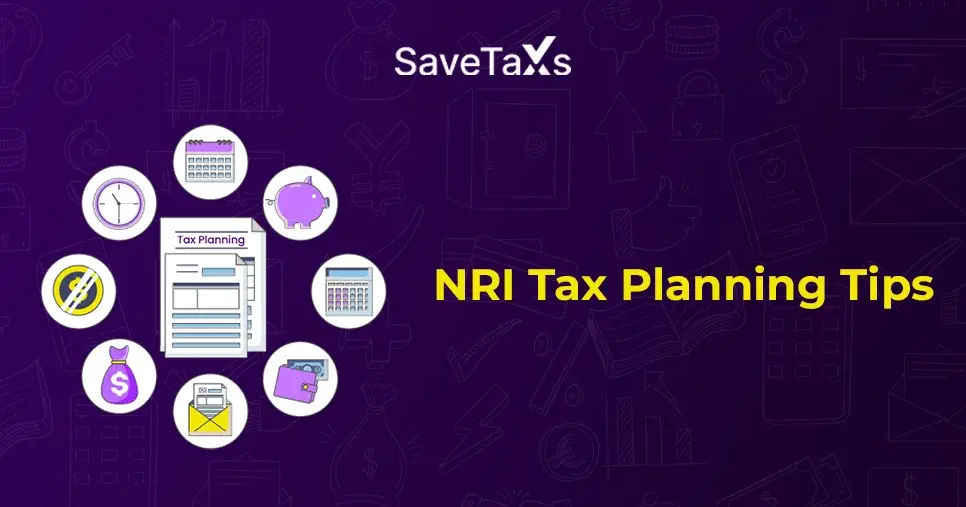

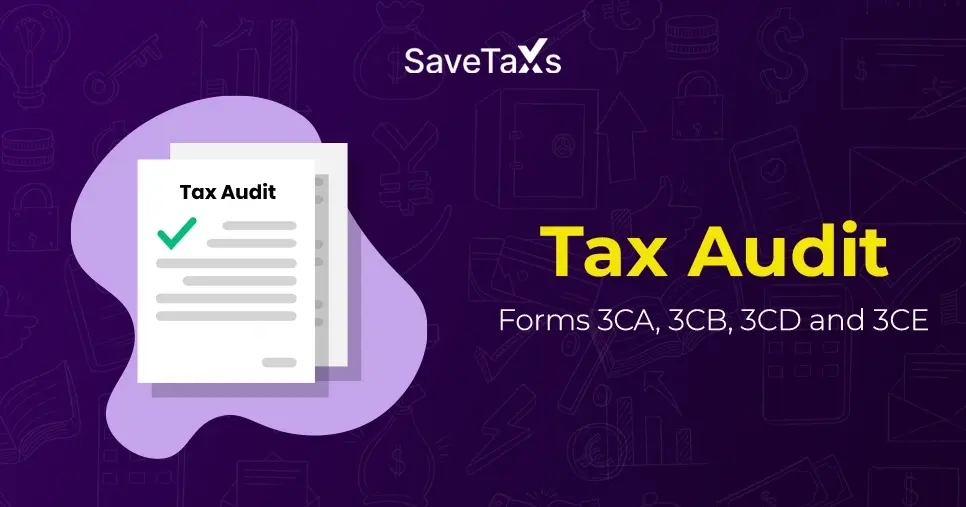

_1754392689.webp)
_1758631896.webp)

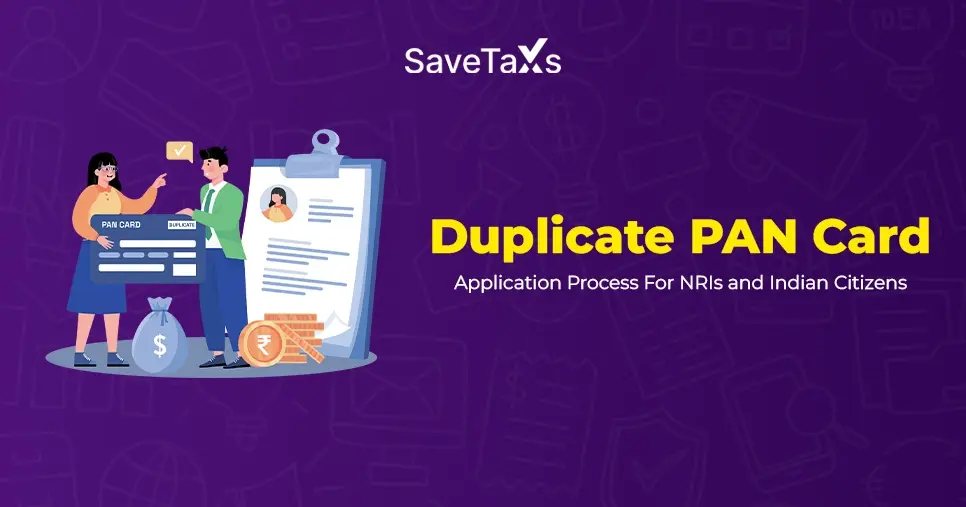



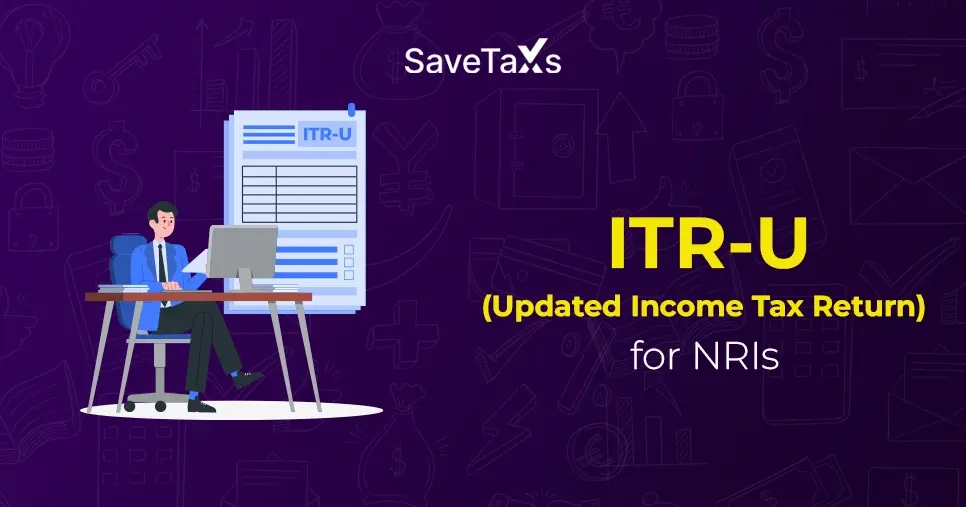
_1765974748.webp)

_1767170479.png)
